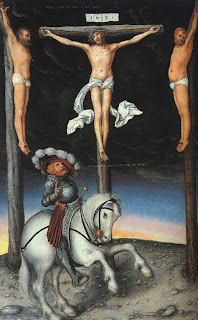The
first big miracle in the life of the early church happened, it seems, almost by
accident. The lame man at the Beautiful Gate, begging for alms, called out to
Peter and John as he had called out so many times before, probably without even
looking up. You can read all about it, as they say, in the Acts of the Apostles, chapter 3!
The
two apostles themselves, perhaps with their companions, were not on the prowl for
pastoral or evangelistic opportunities. They were simply going up to the temple at the hour of prayer – going to pray. Their
ministry to this man sprang out of – was fed by – the soil of prayer and
worship.
It
was the continuation of one of the key narrative strands in Acts, a primary
response to the resurrection. Already in chapter 2 of Acts, we’ve been told
that they were devoted to prayer and teaching, fellowship and the breaking of
bread. Four verses later we hear that they spent
much time in the temple.
But
on the way, they were interrupted by the man’s need. And then they jump into
action, stepping quite naturally into the continuation of the ministry of
Jesus. Jesus’ teaching, healing, forgiving, the exercise of power and
authority, through the Holy Spirit, have fallen upon the church, and Peter and
John are that church. At that moment, in that place, Christ becomes present for
the lame man, in Peter’s words and actions, in his very life.
We
might say that as Jesus was, so the body of Christ became. Peter didn’t have to
think what to do; he just had to do what he did in the name of Jesus. And surprise,
surprise, it worked!
The
amazed crowd gathered like flies to the honey pot, but Peter has learnt his
lesson well at the feet of Jesus. He immediately turned the attention of the
crowd away from the leaping, praising walking man, to the Kingdom of God.
Our
business, he says, is not about signs, but about that which signs signify. From
why do you wonder? he turns pretty
immediately to the good news: the God of
Abraham has glorified his servant, or son Jesus. The healing is a small but
significant act, pointing to the need for a total reorientation in the light of
the death and resurrection of Christ.
The
sermon itself has the typical structure of
a.
A summary of the Old Testament
narrative;
b.
fulfilled in the life, death and
resurrection of Jesus.
c.
This is followed by judgement on
the faithlessness of the past;
d.
and a call to the faithless ones
to become faithful. They are to repent, to turn to Jesus, follow Jesus, be
baptized in the name of Jesus.
e.
And as the new faithful, they are
called to a community of power: in the name of Jesus: And by faith in his name, his name itself has made this man strong,
whom you see and know; and the faith that is through Jesus has given him this
perfect health in the presence of all of you.
Towards
the end of the sermon, Peter gives a strange promise: there will be times of refreshing from the presence of
the Lord, followed by the sending of the Messiah at the time of universal restoration.
We
sort of understand the end times. But times of refreshing? These are the moments,
the markers, the signs, which remind us that the people of the Way, Peter,
John, we, have stepped out of the world into the Kingdom of God as it unfolds
and moves towards completion on the last day.
These
times of refreshing are what George Herbert calls ‘heaven in ordinary’, when we
are suddenly and strangely made aware of the fact that we inhabit a new world,
a Kingdom that cannot be overthrown, in the midst of what is still a very
mixed, confusing and often painful life.
All
very promising, until we realize that we can’t make these moments happen. However,
if we wheel back to the beginning of Acts 3, and two disciples on the way to the Temple to pray , we remember
that these times of refreshing come from the presence of the Lord.
And
so there are 4 little principles that we can practise that relate to the
presence of the Lord. In order to prepare space for these times of refreshing
in our lives, we must
a.
wait
– make ourselves available in the temple
so that God may draw near to us.
b.
watch
– look for the signs of God’s presence, encouragement and refreshing that are
already around us, but which get ignored in the haste of life.
c.
ask
– reminded by Jesus that we never got anything by not asking, we approach a
generous God in faith. And finally
d.
seek
– with risky praying that we too, in the midst of a messy and turbulent life,
may see miracles, signs of God’s presence as the Kingdom breaks in to a humdrum
and despairing world.






